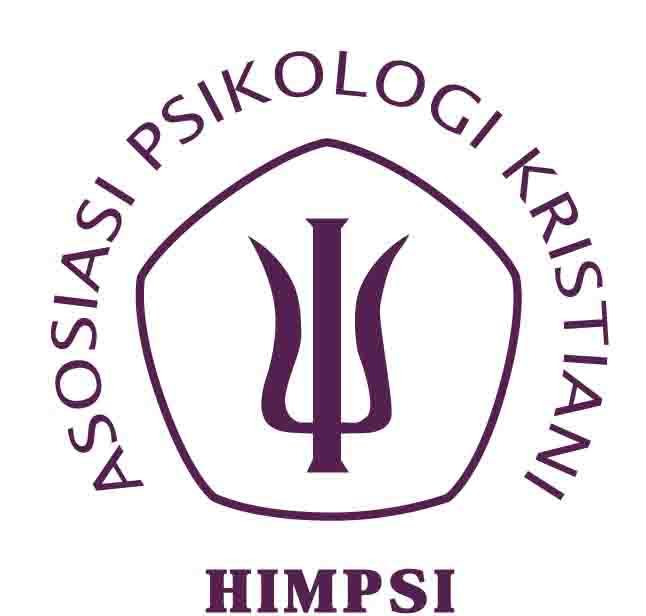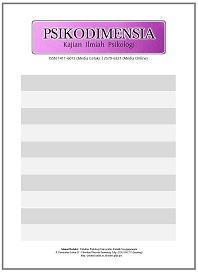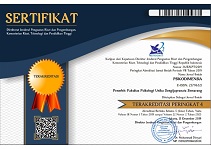The Differences of Counseling Satisfaction Between Counselees With Counseling Style Matches With Their Personalities and Those Who Are Not
Abstract
Keywords
Full Text:
PDFReferences
Davey, A., Rostant, K., Harrop, K., Goldblatt, J., & O’leary, P.(2005). Evaluating Genetic Counseling: Client Expectations, Psychological Adjustment and Satisfaction with Service, Journal of Genetic Counseling, Vol.14, No.3. DOI:10.1007/s10897-0005-0519-
Fowler, D.M, Glenwright, B.J, Bhatia, M, andDrapeu, M. (2011). Counseling Expectation of a Sample of East Asian and Caucasian Canadain Undergraduates in Canada, Canadian Journal of Counselling and Psychotherapy, 45(2)151-167Gladding, S. T.(2004).KonselingProfesi yang Menyeluruh, Jakarta, PT Indeks
Hernawati dan Primastuti (2017). Membangun Model Layanan Konseling Psikologis yang Sesuai Dengan Kepribadian Orang Semarang, Laporan Penelitian, Universitas Katholik Soegijapranata.
Holler, T. R.(2006).The Importance o f Client Personality in the Prediction of Preference for a Counseling Approach, Memphis University, Disertation
Kaknovets, R. (2011). Relationship Among Personality, Expectations about Counseling, and
Help-Seeking Attitudes. Journal of Counseling and Development, 89(1), 11-19.
Larsen, R.j., Buss, David M. (2002). Persoality Psychology: Domain of KnowledgeAbout Human Nature. New York: McGraw Hill.
Lasarus, A.A(1989). Brief Psychotherapy: The Multimodal Model. Psychology, A Journal of Human Behaviour. Vol.26 (1) 6-10.
Leibert, T.W. (2011). The Dimensions of Common Factors in Counseling, International Journal for the Advancement of Counseling. Vol 33, 127-138.DOI 10.1007/s10447-011-9115-7
Lyddon, W.J.(1989). Personal Epistemology and Preference for Counseling.Journal of Counseling Psychology, Vol.36 4.423-429
McCrae, R.R & Costa Jr., P.T(1997). Personality Trait Structure as a Human Universality. American Psychologist.Vol 52 (5) 509-516.
Oluwatoyin, B.A. (2016). Evolving Expectations for Personality Traits in Counseling Psychologist in Training, Ife Psychologia, 24(2), ISSN 1117-1421.267-278
Pervin, L.A & John, O.P, 2001, Personality: Theory and Research, 8 ed. New York: John Wiley & Sons, Inc.
Ribner, D.S & Paz, C.K (2002). Client’sView of a Successful Helping Relationship. Journal of Social Work. 47(4) 379-387.
Sanderson, C., &Clarkin, J.F(2002). Further Use of The NEO-PI-R Personality Dimension in Differential Treatment Planning. In Personality Disorder and The Five-Factor Model Personality.
Smith, H. (2001). Professional Identity for Counsellor. In D.C Locke, J.E.Myers, & E.L.Herr (Eds), The handbook of Counselling. Thounsand Oaks, CA:Sage
Xie, Q. (2015). Intellectual Style: Their Associations and Their Relationship to Ability and Personality, Journal of Cogntive Education and Psychology, 14(1) 63-76.
DOI: https://doi.org/10.24167/psidim.v17i2.1720
Print ISSN : 1411-6073 | online ISSN : 2579-6321 View My Stats

This work is licensed under a Creative Commons Attribution 4.0 International License.




















